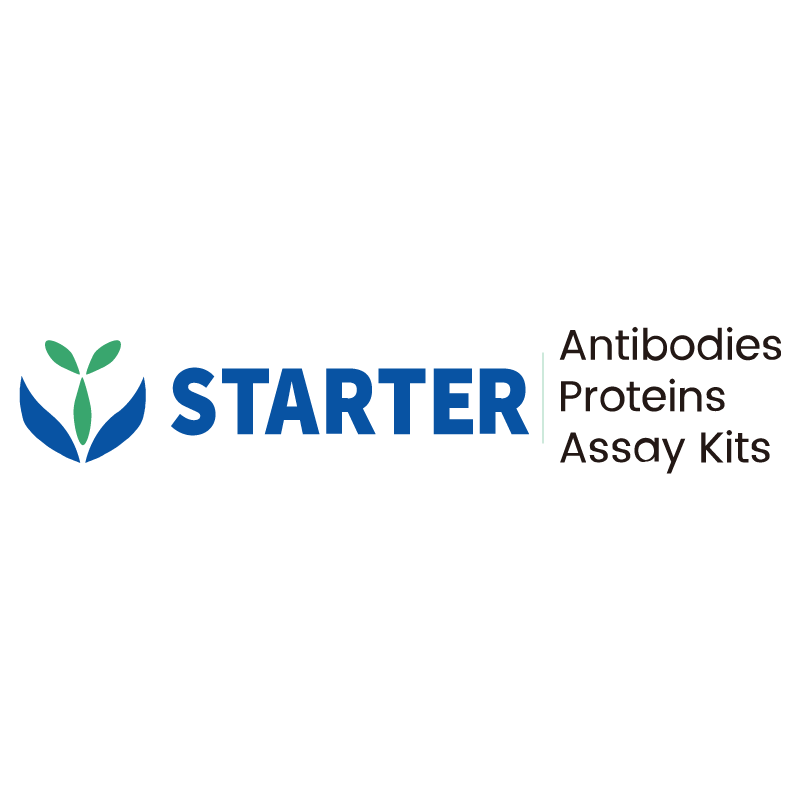WB result of KDM6A Recombinant Rabbit mAb
Primary antibody: KDM6A Recombinant Rabbit mAb at 1/1000 dilution
Lane 1: THP-1 whole cell lysate 20 µg
Lane 2: PANC-1 whole cell lysate 20 µg
Lane 3: HEK-293 whole cell lysate 20 µg
Lane 4: K562 whole cell lysate 20 µg
Negative control: THP-1 whole cell lysate
Weak expression: PANC-1 whole cell lysate
Secondary antibody: Goat Anti-Rabbit IgG, (H+L), HRP conjugated at 1/10000 dilution Predicted MW: 154 kDa
Observed MW: 180 kDa
Product Details
Product Details
Product Specification
| Host | Rabbit |
| Antigen | KDM6A |
| Synonyms | Lysine-specific demethylase 6A; Histone demethylase UTX; Ubiquitously-transcribed TPR protein on the X chromosome; Ubiquitously-transcribed X chromosome tetratricopeptide repeat protein; [histone H3]-trimethyl-L-lysine(27) demethylase 6A; UTX |
| Immunogen | Synthetic Peptide |
| Location | Nucleus |
| Accession | O15550 |
| Clone Number | S-1728-51 |
| Antibody Type | Recombinant mAb |
| Isotype | IgG |
| Application | WB, IHC-P |
| Reactivity | Hu, Ms, Rt |
| Positive Sample | PANC-1, HEK-293, K562, mouse spleen |
| Purification | Protein A |
| Concentration | 0.5 mg/ml |
| Conjugation | Unconjugated |
| Physical Appearance | Liquid |
| Storage Buffer | PBS, 40% Glycerol, 0.05% BSA, 0.03% Proclin 300 |
| Stability & Storage | 12 months from date of receipt / reconstitution, -20 °C as supplied |
Dilution
| application | dilution | species |
| WB | 1:1000 | Hu, Ms |
| IHC-P | 1:200 | Hu, Ms, Rt |
Background
KDM6A is a histone demethylase that belongs to the KDM6 family, specifically targeting di- and tri-methylated histone H3 lysine 27 (H3K27) to remove these modifications, thereby affecting gene expression and transcriptional regulation. KDM6A is frequently mutated in various cancers and functions as a tumor suppressor. Its loss of function or mutations have been implicated in the development and progression of cancers such as multiple myeloma, esophageal squamous cell carcinoma, clear cell renal cell carcinoma, medulloblastoma, adenoid cystic carcinoma, urothelial bladder cancer, T-cell acute lymphoblastic leukemia, and pancreatic cancer. In prostate cancer, KDM6A mutations are associated with the progression to lethal castration-resistant disease. KDM6A is important for the differentiation of embryonic stem cells and the development of various tissues. Its mutations are known to cause Kabuki syndrome, which is characterized by distinct facial features, skeletal anomalies, and intellectual disability. Apart from its demethylase activity, KDM6A also modulates chromatin reprogramming and mediates transcriptional activation/repression in a ligand protein-dependent manner, affecting various physiological and pathological processes.
Picture
Picture
Western Blot
WB result of KDM6A Recombinant Rabbit mAb
Primary antibody: KDM6A Recombinant Rabbit mAb at 1/1000 dilution
Lane 1: mouse spleen lysate 20 µg
Secondary antibody: Goat Anti-Rabbit IgG, (H+L), HRP conjugated at 1/10000 dilution Predicted MW: 154 kDa
Observed MW: 180 kDa
Immunohistochemistry
IHC shows positive staining in paraffin-embedded human ovarian cancer. Anti-KDM6A antibody was used at 1/200 dilution, followed by a HRP Polymer for Mouse & Rabbit IgG (ready to use). Counterstained with hematoxylin. Heat mediated antigen retrieval with Tris/EDTA buffer pH9.0 was performed before commencing with IHC staining protocol.
IHC shows positive staining in paraffin-embedded mouse testis. Anti-KDM6A antibody was used at 1/200 dilution, followed by a HRP Polymer for Mouse & Rabbit IgG (ready to use). Counterstained with hematoxylin. Heat mediated antigen retrieval with Tris/EDTA buffer pH9.0 was performed before commencing with IHC staining protocol.
IHC shows positive staining in paraffin-embedded rat testis. Anti-KDM6A antibody was used at 1/200 dilution, followed by a HRP Polymer for Mouse & Rabbit IgG (ready to use). Counterstained with hematoxylin. Heat mediated antigen retrieval with Tris/EDTA buffer pH9.0 was performed before commencing with IHC staining protocol.


